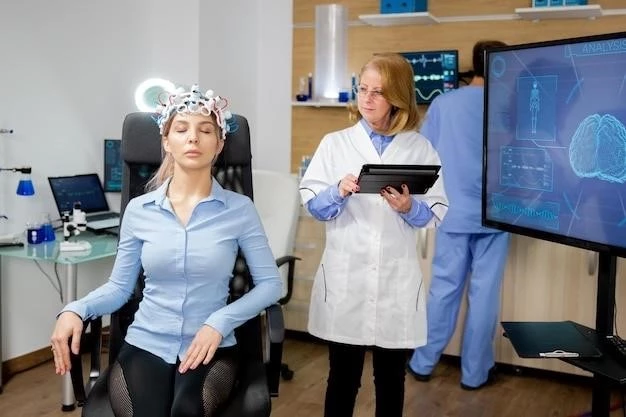Symptoms of Cerebro-oculo-facio-skeletal Syndrome
Neurological Symptoms
Neurological symptoms of Cerebro-oculo-facio-skeletal syndrome may include intellectual disability, developmental delays, seizures, hypotonia, and abnormal brain development. Patients may experience difficulties with speech, coordination, and motor skills, as well as vision and hearing impairments.
Ocular Symptoms
Cerebro-oculo-facio-skeletal syndrome can present with various ocular manifestations such as cataracts, microphthalmia (abnormally small eyes), glaucoma, nystagmus, and retinal abnormalities. Patients may also exhibit sensitivity to light and experience vision problems affecting their overall quality of life.
Facial Features
Individuals with Cerebro-oculo-facio-skeletal syndrome may exhibit distinct facial features including a small head size (microcephaly), a high forehead, a flat nasal bridge, a small jaw (micrognathia), and prominent ears. Additionally, they may have a thin upper lip, a narrow mouth, and widely spaced eyes, contributing to the characteristic facial appearance associated with the condition.
Skeletal Anomalies
Cerebro-oculo-facio-skeletal syndrome is characterized by a range of skeletal abnormalities, which may include joint contractures, thin or brittle bones, scoliosis (abnormal curvature of the spine), and limb deformities. Additionally, individuals with this syndrome may present with abnormalities in the size and shape of their bones, leading to challenges in mobility and overall musculoskeletal function.
Treatment Options for Cerebro-oculo-facio-skeletal Syndrome
A comprehensive multidisciplinary approach involving specialists such as neurologists, ophthalmologists, geneticists, orthopedic surgeons, and physical therapists is essential in managing the complex needs of individuals with Cerebro-oculo-facio-skeletal syndrome; This collaborative strategy aims to address the diverse symptoms and provide holistic care to improve the quality of life for patients with this rare genetic disorder. Symptomatic treatment for Cerebro-oculo-facio-skeletal syndrome focuses on managing specific symptoms and improving quality of life. This may include medications for seizures, visual aids for vision problems, physical therapy for motor difficulties, and nutritional support for feeding challenges. The goal is to alleviate symptoms and enhance overall well-being in individuals affected by this complex genetic condition. Surgical interventions may be necessary for individuals with Cerebro-oculo-facio-skeletal syndrome to address skeletal anomalies, correct vision-related issues, or manage complications such as feeding difficulties. Procedures like orthopedic surgeries for joint contractures, cataract removal, or gastrostomy tube placement can be considered based on the individual’s specific needs and overall health condition with the goal of improving their functional abilities and quality of life. Experimental therapies are being explored as potential treatment options for Cerebro-oculo-facio-skeletal syndrome. These innovative approaches may include gene therapy, stem cell therapy, or pharmacological interventions aimed at targeting specific molecular pathways associated with the condition. Clinical trials and research studies are essential to evaluate the safety and efficacy of these novel therapies in addressing the underlying genetic causes and improving outcomes for individuals affected by this rare syndrome. Cerebro-oculo-facio-skeletal syndrome is primarily caused by mutations in the ERCC1, ERCC5, or ERCC6 genes, which are involved in DNA repair processes. These mutations lead to impaired DNA repair mechanisms, resulting in genomic instability and the characteristic features associated with the syndrome. Understanding the specific genetic mutations is essential for accurate diagnosis and potential targeted therapeutic strategies in the management of this rare genetic disorder. Cerebro-oculo-facio-skeletal syndrome follows an autosomal recessive pattern of inheritance, meaning that individuals inherit two copies of a mutated gene, one from each parent. Carriers of a single mutated gene typically do not show symptoms of the syndrome. Understanding the inheritance pattern is crucial for genetic counseling and family planning decisions to assess the risk of passing on the condition to future generations. Understanding the genotype-phenotype correlations in Cerebro-oculo-facio-skeletal syndrome is essential for predicting the range and severity of symptoms based on the specific genetic mutations present in an individual. Variations in genetic mutations can influence the clinical presentation and overall disease course, impacting treatment decisions and prognosis. Close evaluation of these correlations can aid in personalized healthcare approaches and improve management strategies for individuals affected by this syndrome. The prognosis of Cerebro-oculo-facio-skeletal syndrome is influenced by factors such as the severity of neurological symptoms, presence of additional health complications, access to comprehensive medical care, and early intervention strategies. Timely diagnosis, appropriate treatment, and multidisciplinary support play significant roles in shaping the long-term outlook for individuals affected by this complex genetic disorder. The life expectancy of individuals with Cerebro-oculo-facio-skeletal syndrome can vary based on the severity of symptoms, presence of associated complications, and access to supportive care. While the syndrome can impact overall health and quality of life, advancements in medical management and supportive interventions have the potential to improve outcomes and enhance life expectancy for affected individuals. When managing Cerebro-oculo-facio-skeletal syndrome, considerations for the quality of life are crucial. Providing comprehensive care, addressing physical and cognitive needs, promoting social interactions, and offering psychological support are vital aspects that can enhance the well-being and overall quality of life for individuals affected by this rare genetic condition. Multidisciplinary interventions tailored to the specific needs of each individual can positively impact their quality of life. Ongoing research studies and clinical trials are exploring novel treatment approaches, genetic therapies, and management strategies for individuals with Cerebro-oculo-facio-skeletal syndrome. These studies aim to enhance understanding of the syndrome, improve diagnostic methods, and develop targeted interventions to address the complex needs of affected individuals. Collaborative efforts involving researchers, healthcare professionals, and patient advocacy groups are driving innovative advancements in the field of Cerebro-oculo-facio-skeletal syndrome. Future treatments for Cerebro-oculo-facio-skeletal syndrome may include precision medicine approaches, gene editing technologies, and targeted therapies aimed at correcting underlying genetic mutations or alleviating specific symptoms associated with the condition. Advancements in personalized medicine, regenerative medicine, and neurodevelopmental interventions hold promise for improving outcomes and quality of life for individuals affected by this rare genetic syndrome. Continued research and clinical trials are essential to validate the efficacy and safety of potential future treatments. Collaborative research efforts involving scientists, clinicians, patient advocacy groups, and pharmaceutical companies are pivotal in advancing the understanding and management of Cerebro-oculo-facio-skeletal syndrome. By sharing knowledge, resources, and expertise, these collaborative initiatives aim to accelerate the development of novel therapies, enhance diagnostic capabilities, and improve outcomes for individuals affected by this rare genetic disorder. Multidisciplinary collaboration is key to driving progress in the field of Cerebro-oculo-facio-skeletal syndrome. The clinical evaluation for Cerebro-oculo-facio-skeletal syndrome involves a thorough assessment of neurological, ocular, facial, and skeletal features. Medical history review, physical examinations, and cognitive assessments are essential. Healthcare providers utilize specific diagnostic criteria to identify characteristic signs and symptoms, facilitating an accurate diagnosis of this rare genetic disorder. Genetic testing plays a crucial role in confirming a diagnosis of Cerebro-oculo-facio-skeletal syndrome by identifying mutations in the ERCC1, ERCC5, or ERCC6 genes. Molecular genetic tests, including sequencing and deletion/duplication analysis, can reveal specific genetic changes associated with the syndrome. Genetic counseling is recommended to discuss testing options, results, and implications for affected individuals and their families. Imaging studies such as MRI, CT scans, and X-rays are utilized in the diagnosis of Cerebro-oculo-facio-skeletal syndrome to assess brain structure, detect skeletal anomalies, and evaluate ocular abnormalities. These non-invasive imaging techniques provide valuable insights into the extent of anatomical changes and aid healthcare providers in formulating an accurate diagnosis and developing a comprehensive management plan for individuals with this complex genetic disorder. Individuals with Cerebro-oculo-facio-skeletal syndrome may require respiratory support to manage breathing difficulties due to respiratory muscle weakness or other respiratory issues. This can include the use of oxygen therapy, assisted ventilation, or other supportive measures to ensure optimal respiratory function and overall well-being. Nutritional interventions play a crucial role in managing individuals with Cerebro-oculo-facio-skeletal syndrome, addressing feeding difficulties, ensuring adequate calorie intake, and meeting specific nutritional needs. Modifications in diet consistency, feeding methods, and the use of nutritional supplements may be recommended to support optimal growth, development, and overall health for individuals affected by this syndrome. Physical therapy is essential for individuals with Cerebro-oculo-facio-skeletal syndrome to improve mobility, strength, and motor skills. Tailored exercise programs, stretching routines, and adaptive equipment can help enhance functional abilities and promote independence. Physical therapists work closely with individuals and their families to customize rehabilitation plans that address specific needs and optimize overall physical well-being. Educational materials and workshops provide valuable information and support for individuals, families, and caregivers impacted by Cerebro-oculo-facio-skeletal syndrome. These resources offer insights into symptom management, adaptive strategies, and coping mechanisms while fostering a community of understanding and empowerment. Workshops cover topics such as caregiving strategies, communication skills, and navigating healthcare systems to enhance the overall well-being of those affected by the syndrome.Multidisciplinary Approach
Symptomatic Treatment
Surgical Interventions
Experimental Therapies
Genetic Causes of Cerebro-oculo-facio-skeletal Syndrome
Genetic Mutations
Inheritance Patterns
Genotype-Phenotype Correlations
Prognosis for Cerebro-oculo-facio-skeletal Syndrome
Factors Influencing Prognosis
Life Expectancy
Quality of Life Considerations
Research Advancements in Cerebro-oculo-facio-skeletal Syndrome
Current Studies and Trials
Potential Future Treatments
Collaborative Efforts in Research
Diagnosis of Cerebro-oculo-facio-skeletal Syndrome
Clinical Evaluation
Genetic Testing
Imaging Studies
Managing Complications of Cerebro-oculo-facio-skeletal Syndrome
Respiratory Support
Nutritional Interventions
Physical Therapy

Support Resources for Cerebro-oculo-facio-skeletal Syndrome
Educational Materials and Workshops
